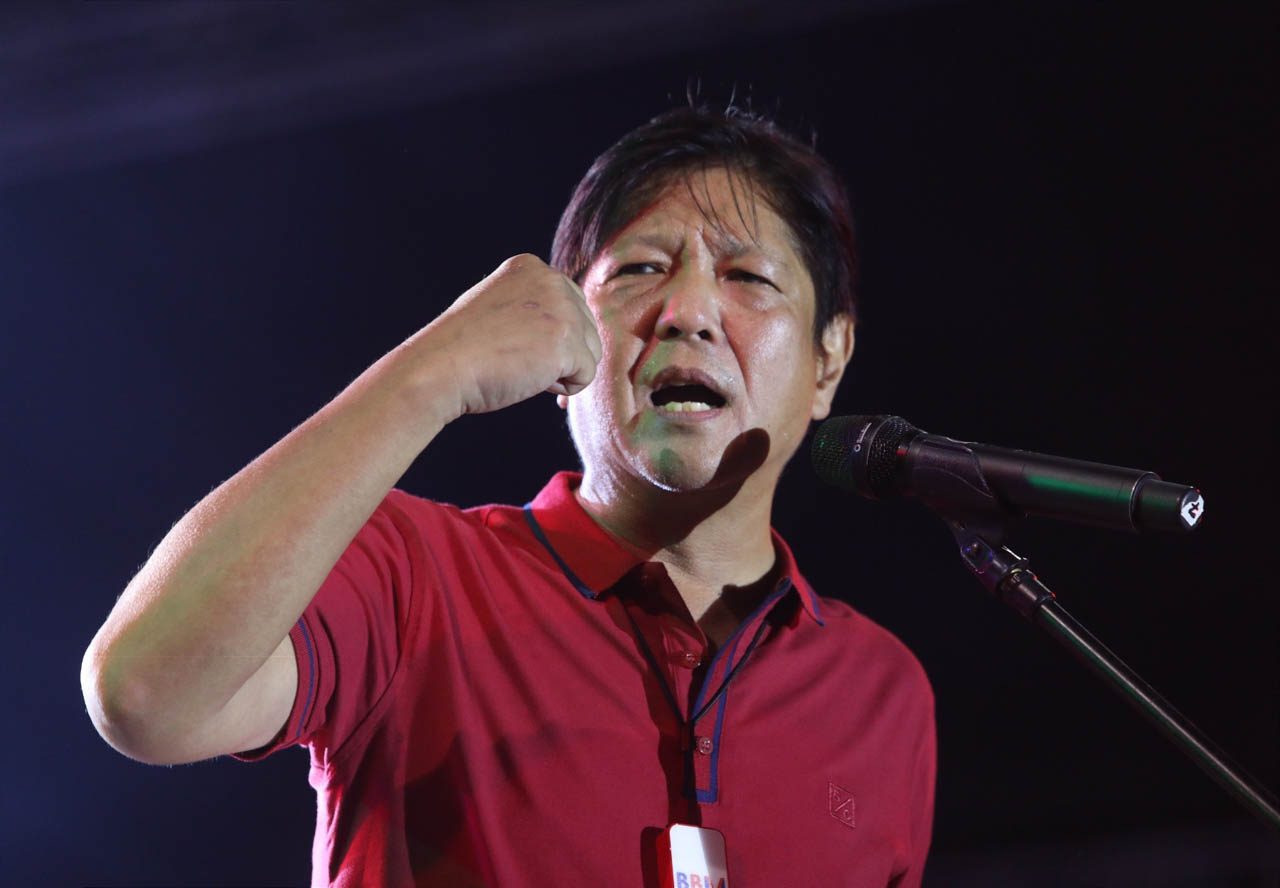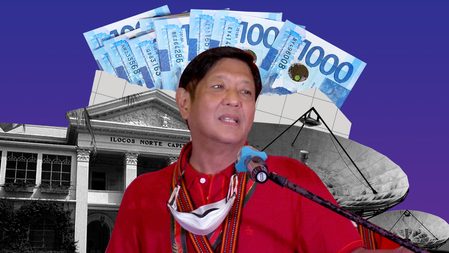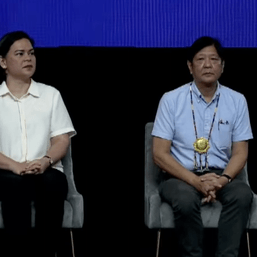SUMMARY
This is AI generated summarization, which may have errors. For context, always refer to the full article.

MANILA, Philippines – President Rodrigo Duterte’s chief economist admitted that not all of their plans for the economy were executed in the six years they were in power.
Presumptive president Ferdinand Marcos Jr., however, can pursue these.
“I think we could have pursued more vigorously our tax reforms,” said Socioeconomic Planning Secretary Karl Chua in a briefing on Thursday, May 12.
Chua said the other tranches of the economic team’s tax reform packages are crucial, as these complement the other tax laws that have been passed during the Duterte administration.
The economic team, led by Finance Secretary Carlos Dominguez III, was able to push for changes in personal income and corporate taxes. Critics, however, still want these repealed, arguing that the laws are anti-poor and only helped big businesses more amid the pandemic.
The pending bills include a third package which tackles real property valuation reform. It aims to promote an equitable real property valuation system. It also seeks to broaden the tax base used for property and property-related taxes of national and local governments, and improve tax collections without increasing existing tax rates.
The fourth package is the proposed Passive Income and Financial Intermediary Taxation Act, which aims to simplify the taxation of passive income, financial services, and transactions. It aims to reduce the number of tax rates from 80 to 36, as well as harmonize tax rates on interest, dividends, capital gains, and business taxes imposed on financial intermediaries.
“We have done tax reform on income and consumption, but the bulk of wealth of the very rich are in their assets, properties, investment, and I think we could have done more,” Chua said.
Chua also noted that the economic team “could do more” for climate change adaptation and mitigation, as well as “connecting the dots” in the education sector.
Chua said the National Economic and Development Authority (NEDA) is pushing for an apprenticeship bill, which aims to link students to businesses.
Marcos’ reputation
Lately, investors have become jittery over an upcoming Marcos presidency, with the stock market slump partly due to the election results.
More importantly, experts are awaiting the difference between Marcos and his father, the late dictator Ferdinand Marcos, who bankrupted the economy through rampant plunder and cronyism.
For Chua, “any change creates uncertainty.”
“I think the best way to address these concerns, as what other analysts and investors have mentioned, is for the new administration to lay out its agenda so that people will understand better, then [it] will alleviate any or possible concerns,” he said.
Sought for comment on Marcos’ image, the NEDA chief said: “Reputation is driven, I think by track record, so you have to give it some time. And your first few policy pronouncements are crucial.”
Experts have questioned some of Marcos’ economic pronouncements, particularly setting a price cap for rice, giving more cash aid, and harping on a grand infrastructure push. These promises were made despite mounting public debt, the government running twin deficits, stagflation, as well as external shocks brought about by the war between Russia and Ukraine.
“I have heard many [plans], but it has to be formalized…. The details are important how to have it done. We may agree on the problem, but how to solve it, we have to do it properly. Everything is a trade-off,” Chua said. – Rappler.com
Add a comment
How does this make you feel?

![[In This Economy] Marcos’ POGO ban is popular, but will it work?](https://www.rappler.com/tachyon/2024/07/thought-leaders-marcos-pogo-ban.jpg?resize=257%2C257&crop=255px%2C0px%2C720px%2C720px)
![[Rappler Investigates] POGOs no-go as Typhoon Carina exits](https://www.rappler.com/tachyon/2024/07/newsletter-graphics-carina-pogo.jpg?resize=257%2C257&crop=424px%2C0px%2C1080px%2C1080px)




![[In This Economy] Part 2 | POGOnomics: Are we banning POGOs out of fear, outrage, not rational thought?](https://www.rappler.com/tachyon/2024/06/thought-leaders-pogonomics-part-2b.jpg?resize=257%2C257&crop=292px%2C0px%2C720px%2C720px)
![[In This Economy] POGOnomics: Weighing the costs and benefits of POGOs](https://www.rappler.com/tachyon/2024/06/thought-leaders-pogonomics-part-1.jpg?resize=257%2C257&crop=279px%2C0px%2C720px%2C720px)
![[In This Economy] Is the Philippine economy stable?](https://www.rappler.com/tachyon/2024/05/philippine-economy-stable-may-10-2024.jpg?resize=257%2C257&crop=461px%2C0px%2C1080px%2C1080px)

![[OPINION] Rodrigo Duterte and his ‘unconditional love’ for China](https://www.rappler.com/tachyon/2024/04/rodrigo-duterte-xi-jinping-august-2019.jpeg?resize=257%2C257&crop=91px%2C0px%2C900px%2C900px)



![[The Slingshot] Lito Patay’s 4 hours and 38 minutes of infamy](https://www.rappler.com/tachyon/2024/07/Lito-Patay-4-hours-infamy-July-19-2024.jpg?resize=257%2C257&crop=233px%2C0px%2C720px%2C720px)
There are no comments yet. Add your comment to start the conversation.